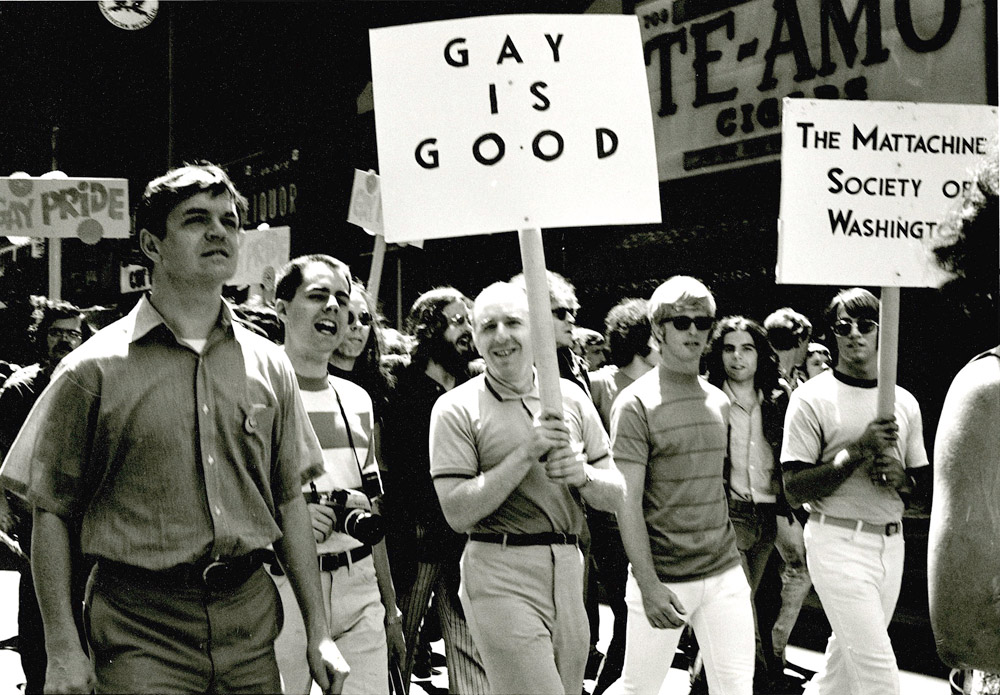At a certain point in “Cured,” there’s a clip from a 1971 episode of “The David Susskind Show” in which the talk show host known for encouraging lively panel discussions aimed to shut one down by telling the group he gathered for the “Women Who Love Women” episode that it’s scientific fact that “homosexuality is an illness” and “there’s a body of medical evidence” to back him up. Even without the vantage point of today, the statement is pointed out as being ludicrous on its face by activists Barbara Gittings and Magora Kennedy, but to the public at large, it was giving legitimacy to a notion for which there was no basis in fact, but rather a stamp of approval from the American Psychiatric Association that, as Patrick Sammon and Bennett Singer thoroughly investigate, was driven far more by personal biases instead of rigorous scientific study.
This has been since rectified, but beyond offering an absorbing account of the how such prejudice against the LGBT community was codified and weaponized during the 1950s through 1970s, “Cured” speaks to a type of ground-level activism that may not grab headlines yet results in the real systemic change in affecting public perception around an issue that feels especially relevant in this current political moment. Although it may not have been evident to the public at large that the APA’s classification of homosexuality as a mental illness was shaped by national conservatism and largely self-serving financially, suggesting it was a problem that could be remedied with extensive therapy, it became a flashpoint for leaders from The Daughters of Bilitis and the Mattachine Society, pioneering gay rights organizations, who knew it couldn’t be true and saw peers experience horrific consequences as a result when being seen as mentally unfit pushed them further into the closet out of fear they could lose their livelihoods or worse be subject to shock treatment.
With a story that revolves around psychiatry and semantics, Sammon and Singer strike the right balance between the personal and political to make it feel so passionate, with extensive archival material and interviews with all the primary players in the movement who are still alive actively recounting how they could build upon the sophistication of other political protests at a time when Vietnam and the Civil Rights movement were in full swing, finding the right pressure points to make an impact. It might’ve been a happy coincidence that the 1970 APA Conference was in San Francisco where a legion of activists wouldn’t need to travel far to confront the 10,000 psychiatrists assembled, but the brilliance behind the protests is illuminated in footage from a Los Angeles APA gathering where future L.A. LGBT Center founder Don Kilhefner seized the mic to create a “dialogue as opposed to a monologue,” successfully giving way to a constructive back-and-forth between activists and psychologists to understand the damage they were doing.
Throughout “Cured,” the power of words can be felt time and again, both when a relatively obscure chapter in the APA manual carries so much weight and the act of personal engagement proves so effective at changing hearts and minds, but they’re only as strong as the people willing to stand behind them. In that regard, Sammon and Singer have captured something mighty.
“Cured” will be available to stream on Outfest beginning at midnight PT August 24th for 72 hours or until viewership limit is reached.




